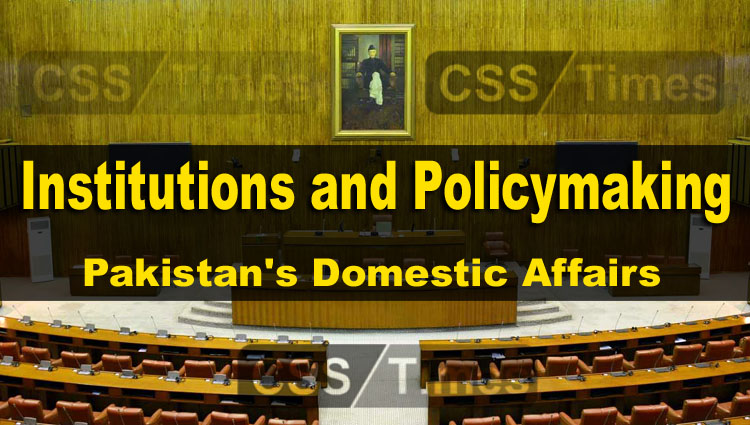By: Iftikhar Ahmad
A general sense of dissatisfaction about credibility of accountability and performance of government is nothing new. Students of public administration and public policy and experts from allied fields of study such as sociology, political science and economics have been engaged in structural functional analysis with a view to improving the system of government that impacts the life of citizens. Microeconomic goals suggest as to how to improve the functioning of the state itself by emphasizing anti-corruption measures. The problem in this context is that international institutions such as IMF and world Bank may get an incorrect perspective that fails to recognize the role of political institutions and the constraints they place on policymaking. Adopting better policies and institutions are not successful because they do not take place in the context of an explanation of why bad policies and institutions are there in the first place. Also, there are problems of non-implementation which render all efforts at policymaking futile. It suggests the need to define the relationship of administrative functions to the Legislative, executive, and judicial branches of government, and also to have an idea of comparative perspective of administration and administrative organizations.
For illustrative purposes, it is helpful to liken the flow of authority in governmental administration to that in private corporations. In such an analogy, the legislature roughly corresponds to a “board of directors” which determines over-all activities and policies. The executive roughly corresponds to a “general manager” who, with the approval of the directors, supplies immediate leadership, directs activities, and assumes responsibility for making important staff appointments. Members of governmental administration correspond to the rank and file of department heads and subordinates who perform specified tasks as responsibly as possible within their limited spheres and give impartial treatment to the public. At all times, administrators are liable to censure by the legislature, to discipline by the executive, to over rulings by the courts, and to criticisms from the public-which range from general charges of “bureaucracy” to complaints about inefficiency in the performance of particular tasks. Administrators may sometimes initiate policies that are adopted by their superiors, but they usually conduct their work efficiently without expecting more than a small measure of recognition; sometimes no recognition at all has been forthcoming.

